You have no items in your cart.
Real Science 4 Kids is Real Science!
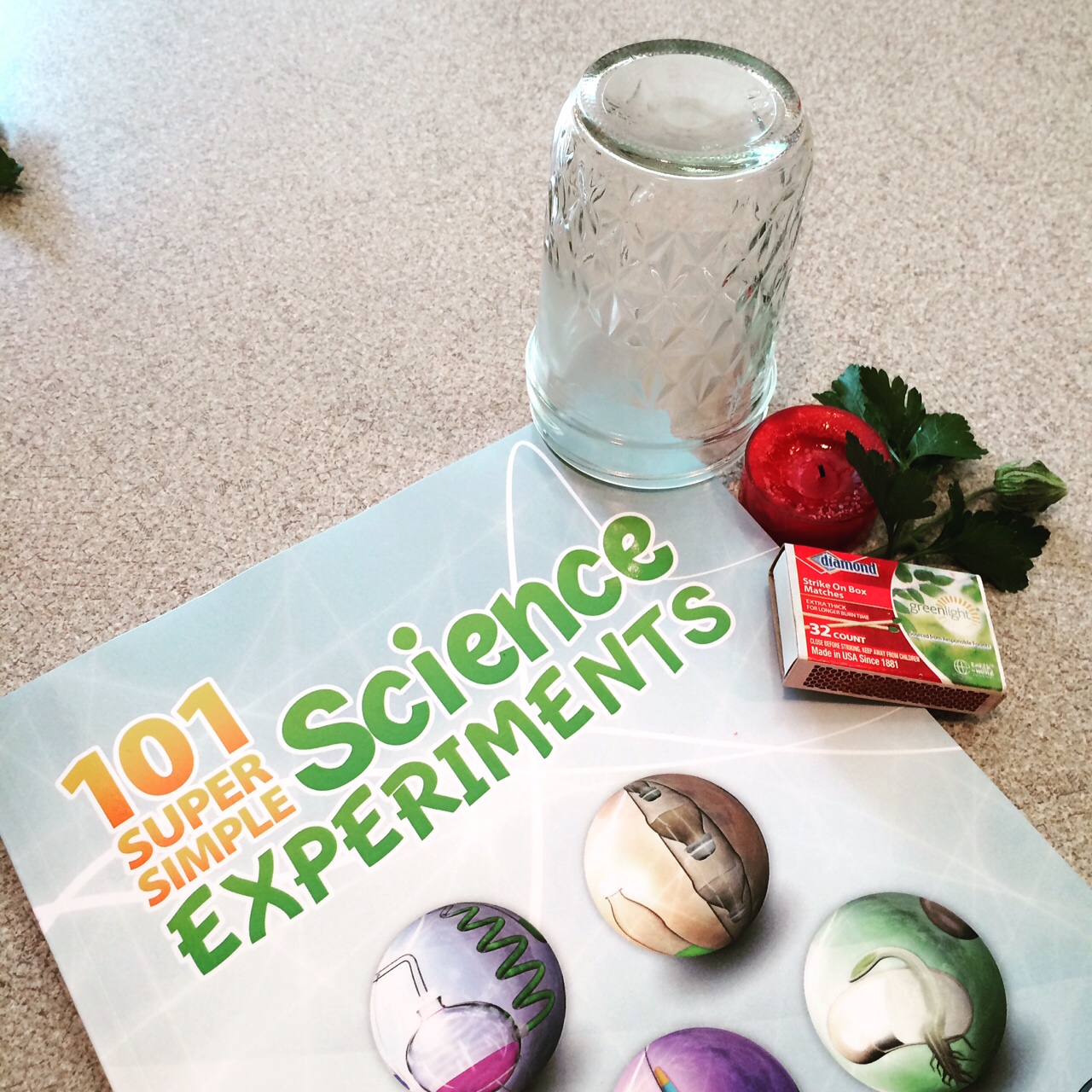
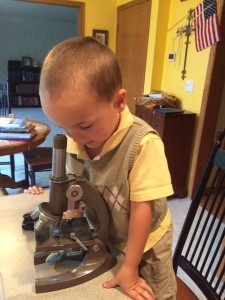 We love science. I mean really love science. There are lot of doctors, engineers and other science types in both of our extended families so I guess that it is not totally surprising that we have children who have a passion for science. The thing is… I think that most kids have a passion for science. Most kids are innately curious about their world and if they are exposed to science in a meaningful way, they are like sponges who simply cannot get enough of this very practical, very tactile and very fascinating field of study.
We love science. I mean really love science. There are lot of doctors, engineers and other science types in both of our extended families so I guess that it is not totally surprising that we have children who have a passion for science. The thing is… I think that most kids have a passion for science. Most kids are innately curious about their world and if they are exposed to science in a meaningful way, they are like sponges who simply cannot get enough of this very practical, very tactile and very fascinating field of study.
There are many good science “curriculums” out there and many great supplemental science resources. The trick with inspiring a love of science is finding a balance between presenting science in a foundational and meaningful way that is supplemented with lots of exploration and not hindered by twaddle or work for the sake of work.
In 2014 I watched Dr. Keller’s presentations at the HECOA Fall Homeschool Conference. I was really impressed with her background, her approach and her rationale for how she built her curriculum. I purchased the K-4 Chemistry book to preview and asked my retired pathologist grandfather for his review of it. His reaction to it was the same as mine: this was a great orientation exposure to Chemistry for little learners.
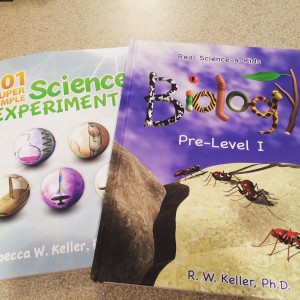
Dr. Keller argues that waiting to teach physics until the learner is much older (which is the traditional approach to science in schools and homeschool curriculum) is flawed and ultimately handicaps the learner. It is her argument that physics and astronomy must be approached early and often just like biology, chemistry and geology.
Dr. Keller’s books have, in my opinion, distilled the primary ideas of each level of science down into slim and easy to absorb unit studies. While I do not love every aspect of her resources, I am generally very impressed with their layout and how effective they are in our home.
Just to disclaim: I am not being compensated for this review in any way. I seriously doubt that Gravitas Publishing (Dr. Keller’s company) even knows who I am beyond the customer id and order number I have from my purchases last year.
Dr. Keller’s books are very thin but that does not mean that they are insubstantial. They simply have cut through the noise of “nice to know” details and just explain the key ideas in a kid friendly way. The pictures and story telling take complicated ideas and make them accessible. In the K-4 Biology book, she compare a cell to a city. As she explains the functions of the many parts of the cell, she likens them to factories, stores, trucks, etc. Very effective. Very easy to understand. Her writing style is light enough that my kids laugh at the geeky jokes and generally love to study the pictures and listen to me read aloud.
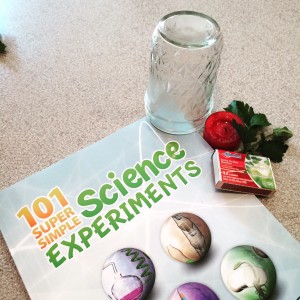
The format of the K-4 series is about a 5-6 week unit study. Each chapter is just 8 or so pages. We would read one or two sections at a time taking approximately 10 minutes per day. Within a week we would have a chapter read and studied and then we would finish the chapter with an experiment.
The teacher’s manual gives much more context to the chapter and includes the instructions for each lab – there is 1 lab per chapter. I find the teacher’s manual to be expensive and maybe not worth the investment at the K-4 level. The teachers manual at the 5-8 level, however, seems to be very much worth it as the same concepts are deeper and the experiments are more complex.
Truly inspired science learning comes from the marriage of knowledge and application. Dr. Keller has produced a series of labs that supplement the text. Two things to understand about this: they are more or less pitched as a companion to the 5-8 book but can easily be used with the K-4 book as well. Also, they can be purchased in single science spine as 21 experiments or all 5 sciences can be purchased in one spine as 101 experiments. It was significant cost savings to buy them all in one book, so despite the $42 price tag, I got it that way knowing that we would use it all year. I have purchased the experiment book through Amazon at a savings.
Because my 4, 6 & 8 year olds are using the K-4 science books right now, we are doing a couple more experiments per week out of the 101 Super Simple Science book to supplement what we are learning in the text. I am not doing all of them because there are so many good ones to choose from and I want to save some of them to pair with the 5-8 text which we will be using in late Winter/Spring.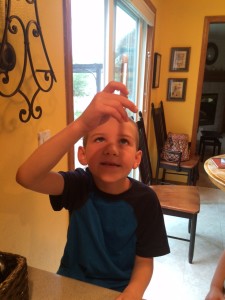
So, the $40+ I am spending on the Super Simple Science book will supplement 2 levels of science for us across 5 units of science (Chemistry, Biology, Physics, Geology and Astronomy).
Why buy the 101 Super Simple Science Experiment book(s) instead of using something from Pinterest or Usborne or Jan VanCleeve?
Two reasons for me: these spiral perfectly with the sciences we are studying – I have experiments that perfectly line up perfectly with the topics in my science book. Also, the experiments are very economical. They do cost something but they really do rely on things you have around the house and only require an easy to buy extra ingredient or two. This has made science labs SUPER SIMPLE for me and budget friendly!
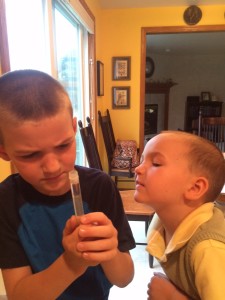
My experience with the lab books (and I own them for the 5-8 level) is that they are very conveyor belt. I have found no value in them at all for our style of home schooling. The teacher’s manual is quite optional. I highly recommend that families get one to see how it works for them and decide if it is a meaningful resource for you. I think that it is going to depend entirely on how much help mom/dad wants going deeper in Kidschool. Regardless, I have found that I can make my own lab sheets and we can talk through the experiments without the twaddle of the lab book. I do appreciate that Dr. Keller is training the young learners to becomes careful notetakers because science demands a rich understanding of the scientific process, research and good note taking – but I think that scholar phase handles that just fine.
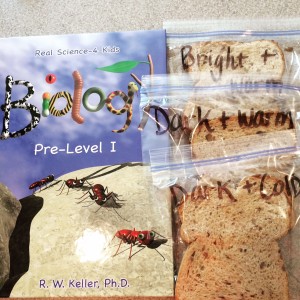
Yes, I did say above that we are doing the K-4 series this fall and the 5-8 series after Christmas with my 4, 6 & 8 year olds. This is where we have to have “off the conveyor belt” thinking. It is not my intention that my kids will have mastery over these concepts and that they will memorize the facts. If those were my goals, I might slow down and do it more like she suggests. I think that scholar phase will take care of that for any child who is going to have a life long love of science. For my kids right now, I want to open doors to ideas about science. I want them to wander around in the gardens of science and marvel at all there is to learn and know.
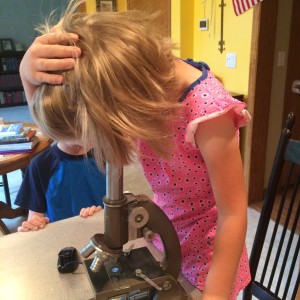 Because I have a true Love of Learning approach to science, it could be argued that having a science curriculum at all is meaningless. I could just as easily fill our days reading and studying science through library resources. And yes, that might true. However, I tend to think of Dr. Keller’s resources as classics in and of themselves because she has passionately paved a path through the sciences in such a way that the kids can journey through this kind of learning without having to jump around. She is like a tour guide through a garden of ideas and she understands how the ideas are grouped and why kids should meet them in a specific order and in a certain way.
Because I have a true Love of Learning approach to science, it could be argued that having a science curriculum at all is meaningless. I could just as easily fill our days reading and studying science through library resources. And yes, that might true. However, I tend to think of Dr. Keller’s resources as classics in and of themselves because she has passionately paved a path through the sciences in such a way that the kids can journey through this kind of learning without having to jump around. She is like a tour guide through a garden of ideas and she understands how the ideas are grouped and why kids should meet them in a specific order and in a certain way.
In TJEd, we know that textbooks are not to master us. We are the masters of our learning and we are to use textbooks as tools in a toolbox of our learning. I think that this is a craftsman style tool that will only encourage a frustration free orientation to science that will help my kids want to learn more and more and more for the rest of their lives.
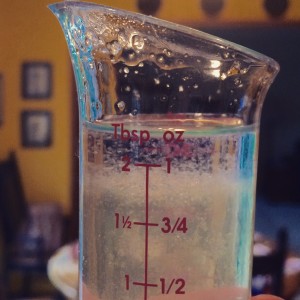
I have no experience with the upper level resources nor the classroom style graded program.

Thank you for sharing your experiences! I have been looking for more science curriculum to use, and this looks like a great fit.
We have really enjoyed it! It has been such a fun way to approach science.
Great review!
Thank you!!
Which books did you buy to start?
I have a 10, 7, 5 and 3 year old boys